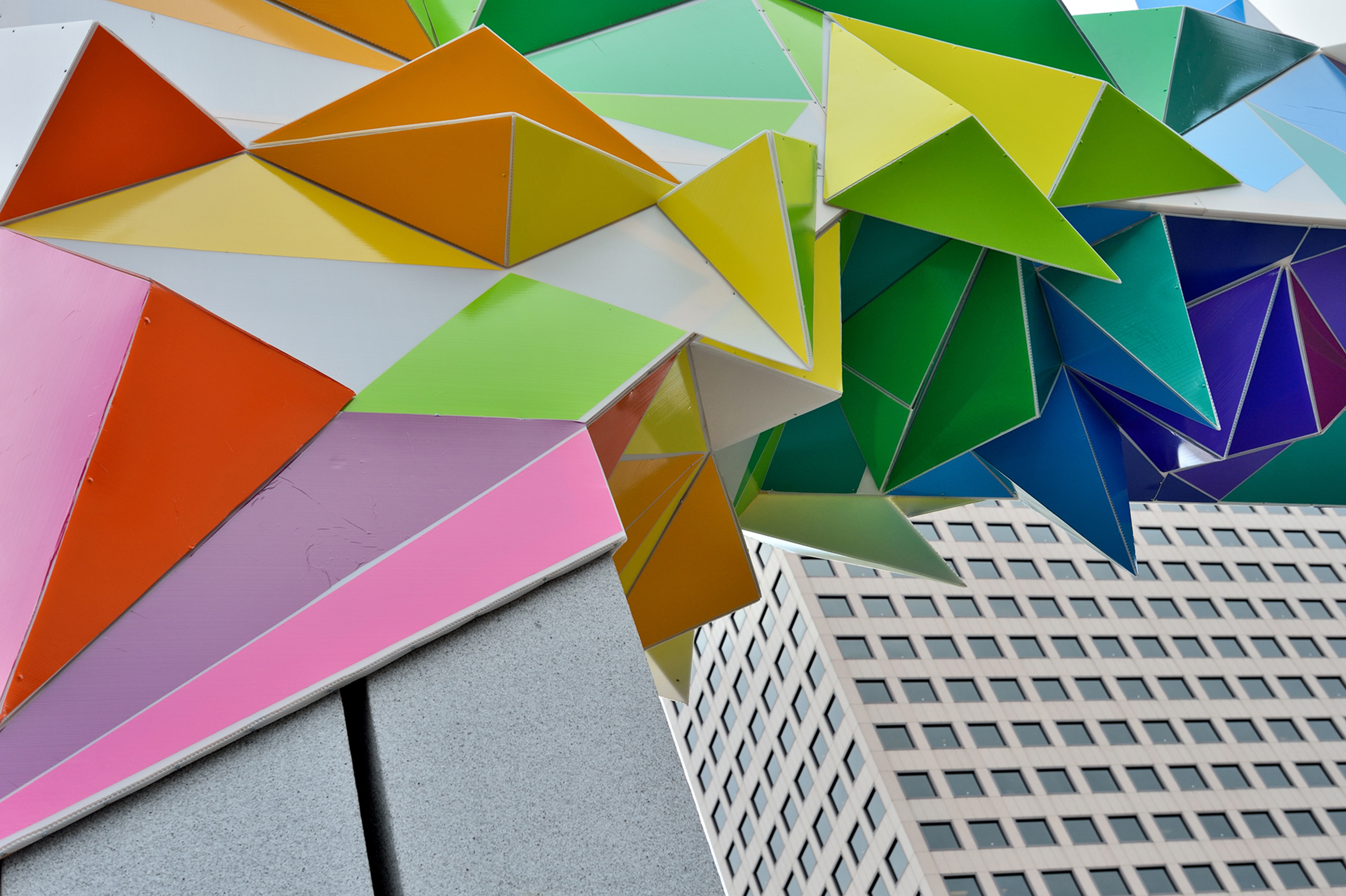Arts and Social Impact Webinar Collection
-
Register
- Non-member - $99
- Member - Free!
About this Collection
The arts make more things possible, from better education to greater health outcomes to a more civically-engaged citizenry—but people don’t always see the connection to the arts when change happens. From education and job security to housing, public safety, the military, and more, demonstrating the social impact of the arts and other sectors is increasingly important. In this series, we will examine the social impact of the arts and other sectors. Join us each month for a new webinar and topic.
-
Contains 2 Component(s) Recorded On: 12/19/2019
For years the story has been “Artists move into a neighborhood and make it attractive and then the developers come in and move the artist out “ In this webinar John Paradiso a Visual Artist that lives and works in the Gateway Arts District in Prince George’s County, Maryland will give an overview of working with a Community Development Corporation, other arts organizations, and local artists to pave the way for developers to come in and embrace their artistic community. Paradiso will focus on the new STUDIO 3807 mixed-use residential apartment development in Brentwood, Maryland and his partnership with the developer, Landex Corporation LLC, bringing a visual arts presence into the building. This presence includes a Permanent Art Collection, the Portico Gallery, six visual art studios, and arts programming for the residents of the building and the community at large.

About this Webinar
Artists and Developers: A Story of a Working Relationship and a Relationship That Works
For years the story has been “Artists move into a neighborhood and make it attractive and then the developers come in and move the artist out."
In this webinar John Paradiso a Visual Artist that lives and works in the Gateway Arts District in Prince George’s County, Maryland will give an overview of working with a Community Development Corporation, other arts organizations, and local artists to pave the way for developers to come in and embrace their artistic community.
Paradiso will focus on the new STUDIO 3807 mixed-use residential apartment development in Brentwood, Maryland and his partnership with the developer, Landex Corporation LLC, bringing a visual arts presence into the building. This presence includes a Permanent Art Collection, the Portico Gallery, six visual art studios, and arts programming for the residents of the building and the community at large.
The arts make more things possible, from better education to greater health outcomes to a more civically-engaged citizenry—but people don’t always see the connection to the arts when change happens. From education and job security to housing, public safety, the military, and more, demonstrating the social impact of the arts and other sectors is increasingly important. In this series, we will examine the social impact of the arts and other sectors. Join us each month for a new webinar and topic.
John Paradiso
Curator and Mixed Media Artist
John Paradiso earned a BFA at the State University of New York, Purchase and his MFA at the State University of New York, Buffalo. He is a mixed media artist and describes his work as metaphorical based upon such issues as identity, sexuality, and health.
Paradiso has worked at the Gateway Community Development Corporation for 13 years as their curator of programs, overseeing 25 visual art studios, the 39th Street Gallery, and extensive arts programming.
For the last two years John has worked with the Landex Development LLC as an art consultant acquisitioning permanent art collections for their two new residential mixed-use properties, Studio 3807 and the Artisan 4100.
John is also the resident artist/curator at Portico Gallery and Studios located in the Studio 3807 building .
Website: www.john-paradiso.com and https://www.studio3807.com/
-
Contains 2 Component(s)
The arts and…immigration. At this present moment, immigrant artists are often extremely vulnerable and marginalized in our society. Many produce works of high caliber and emigrate here seeking opportunities. They are often educated, experienced, and heralded in their “home” countries. Support for them includes respect for the artist and their art form (frequently, traditional art practices of their native lands). Further, programs specific for immigrant artists need to be created in partnership with the immigrant artists communities. Fears of deportation, incarceration, and voiceless representation earmark many of their lives. Using real-world examples and the New York Foundation for the Arts (NYFA)’s Immigrant Artist Mentoring Program as a case study; this webinar will share stories from its’ twelve year history, recent experiences offering this program nationwide (Detroit, Oakland, San Antonio, Newark), suggest recommended ways of empowering immigrant artists with tools, resources, and access to own their rightful place in national conversations, and creative processes in the cultural landscape.

About this Webinar
The arts and…immigration. At this present moment, immigrant artists are often extremely vulnerable and marginalized in our society. Many produce works of high caliber and emigrate here seeking opportunities. They are often educated, experienced, and heralded in their “home” countries. Support for them includes respect for the artist and their art form (frequently, traditional art practices of their native lands). Further, programs specific for immigrant artists need to be created in partnership with the immigrant artists communities. Fears of deportation, incarceration, and voiceless representation earmark many of their lives.
Using real-world examples and the New York Foundation for the Arts (NYFA)’s Immigrant Artist Mentoring Program as a case study; this webinar will share stories from its’ twelve year history, recent experiences offering this program nationwide (Detroit, Oakland, San Antonio, Newark), suggest recommended ways of empowering immigrant artists with tools, resources, and access to own their rightful place in national conversations, and creative processes in the cultural landscape.
Learning Objectives:
- Participants will learn an overview and history of the program, its goals and outcomes
- Learn about the moving parts of the program structure that knit together to create an impactful outcome; from mentorship, providing access to networks and resources, alumni engagement, and partnerships
- Key takeaways; from lessons learned to what challenges immigrant artist encounter and how that can translate to other ways of supporting immigrant artists nationwide and beyond.
The arts make more things possible, from better education to greater health outcomes to a more civically-engaged citizenry—but people don’t always see the connection to the arts when change happens. From education and job security to housing, public safety, the military, and more, demonstrating the social impact of the arts and other sectors is increasingly important. In this series, we will examine the social impact of the arts and other sectors. Join us each month for a new webinar and topic.
Judy Cai
Senior Program Officer, NYFA Learning
Judy Cai is the Senior Program Officer of NYFA Learning at the New York Foundation for the Arts (NYFA). She is facilitating various professional development programs at NYFA, such as entrepreneurial boot camps and the Immigrant Artist Mentoring Program, to better serve individual artists. With a strong interest in arts and cultural exchange, Judy is also managing a number of NYFA’s China programs, and outreaching to local Asian artist communities.
Prior to this position, Judy was the Outreach Coordinator at the Flushing Council on Culture and the Arts. To become a strong advocate of a global arts exchange and collect extensive experiences in international communications, Judy also worked at Christie’s, Dance/USA and Shanghai International Arts Festival. Judy Cai has a MA in Arts Management from Carnegie Mellon University, a BS in Culture and Arts Management, and a Bachelor of Law from Shanghai Jiao Tong University.
Website: NYFA Immigrant Artist Program
Alicia Ehni
Program Officer, NYFA Learning
Alicia Ehni is a multidisciplinary artist and Program Officer, NYFA Learning. At the New York Foundation for the Arts (NYFA) she works on professional development programs for artists of all disciplines and implements programs in Spanish. She is also the Editor of NYFA Con Edison Immigrant Artist Newsletter, former New York Chair for Membership for ArtTable 2016-2019 and serves on Grantmakers in the Arts (GIA) Support for Individual Artists committee.
In her previous role as Gallery Director of Frederico Seve Gallery/Latincollector, Alicia had the opportunity to work with artist Carmen Herrera, Fanny Sanin, and with artists estates, such as Fundacion Gego and Fundacion Emilio Sanchez.
Alicia Ehni studied Fine Arts at Universidad Católica, Perú and Pratt Institute, Brooklyn, NY and Arts Administration at NYU. She is a 2018 fellow of NALAC Leadership Institute, was selected as Elizabeth Foundation for the Arts 2018-19 SHIFT Resident Artist, received a 2019 Puffin Foundation Grant and was awarded a residency at MASS MoCA Summer 2019.
Website: NYFA Immigrant Artist Program
-
Contains 2 Component(s) Recorded On: 10/18/2019
Arts and community development requires a variety of partnerships and collaborations, often with individuals and groups from non-arts sectors. Understanding how socioeconomic, political and cultural values intersect is crucial to moving development forward; additionally, ambitious artistic endeavors can be stymied by a lack of funding and knowledge of local ordinances or public policies, and the inability to connect with valuable community stakeholders. Resourcing (beyond “money”) is foundational to the work of community-engaged development. Using real-world examples and Love Bank Park in St. Louis, MO as a case study, this webinar will explore how to identify assets, be proactive about potential challenges, and work with a variety of individuals to grow sustainable development through art-based projects and initiatives.

About this Webinar
Arts and community development requires a variety of partnerships and collaborations, often with individuals and groups from non-arts sectors. Understanding how socioeconomic, political and cultural values intersect is crucial to moving development forward; additionally, ambitious artistic endeavors can be stymied by a lack of funding and knowledge of local ordinances or public policies, and the inability to connect with valuable community stakeholders. Resourcing (beyond “money”) is foundational to the work of community-engaged development.
Using real-world examples and Love Bank Park in St. Louis, MO as a case study, this webinar will explore how to identify assets, be proactive about potential challenges, and work with a variety of individuals to grow sustainable development through art-based projects and initiatives.
Learning Objectives:
- Exploration of arts-based development projects that work with (and benefit) both artists and non-artists alike.
- Utilize inquiry processes to identify community needs and challenges.
- Understand how to cultivate multilevel partnerships that can grow community-engaged, cross-sector collaborations.
The arts make more things possible, from better education to greater health outcomes to a more civically-engaged citizenry—but people don’t always see the connection to the arts when change happens. From education and job security to housing, public safety, the military, and more, demonstrating the social impact of the arts and other sectors is increasingly important. In this series, we will examine the social impact of the arts and other sectors. Join us each month for a new webinar and topic.
Pacia Elaine Anderson
Spoken Word Artist
Like her poetic work, Pacia Elaine Anderson's commitment to community care has its roots in the church. Guided by deeply spiritual elder women who ministered in jails, volunteered as
hospice caregivers, and fostered children, Pacia Elaine learned early that a purposeful life is one that is lived creatively, communally, and in the humble service of others. As an adult, this
self-described Word Artist 's work meets at the intersection of arts-learning and community development, with a focus on youth advocacy and the reclamation of the cultural traditions of
the African Diaspora. Pacia Elaine collaborates as a teaching artist, creative consultant, and community development and engagement strategist with numerous organizations and institutions, both locally and nationally. In 2020 she was named Community Impact Artist by the St. Louis Visionary awards, and serves on the boards of Volunteer Lawyers and Accountants for the Arts, and St. Louis Art Place, an artist housing initiative.Website: www.paciaelaine.com
Email: paciaanderson@gmail.com



